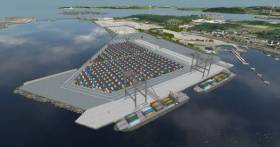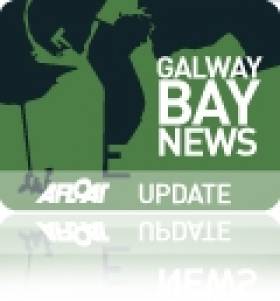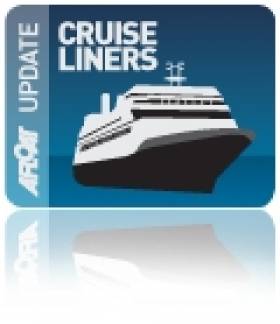Displaying items by tag: Port & Shipping
The Port of Cork CEO Brendan Keating has warned that investment in shipping infrastructure is key to offsetting the effects of Brexit in the southern region of the country.
As EchoLive reports, Mr Keating told the Construction Industry Federation Southern Construct conference that the Port, which had a €35.4 million turnover in 2018, will be hit by Brexit with decreased agricultural activity projected and a reduction of dry bulk goods being shipped and must adapt to new trends in international shipping.
“The region is highly dependent on international growth in the achievement of economic growth and highly dependent on international shipping,” Mr Keating said.
“We must continue to invest in port infrastructure,” he added.
For more click here from the newspaper.
New Galway Port Development Plans Revived
#GALWAY HARBOUR - Plans for a €200 million deepwater port in Galway Harbour have been revived, according to The Irish Times, as harbour bosses seek to exercise a clause in the EU habitats directive.
As previously reported on Afloat.ie, plans for the port were withdrawn after the failure of the Galway Harbour Company to secure the necessary approvals for preliminary site investigation works.
The original development proposed transferring port operations from the existing single-dock facility south into Galway Bay, where reclaimed land in deeper waters would accommodate larger cruise liners as well as a freight rail link and a 200-berth marina.
Galway Harbour Company chief executive Eamon Bradshaw said the company was now taking a new route after examining previous planning applications involving sensitive habitats.
He pointed out that under article 6.4 of the EU habitats directive, applications for projects classified under “imperative reasons for overriding public interest” allow developers to compensate for any infringement on senstive habitats by restoring an area of a similar size in a different location.
Bradshaw added that consultations are under way with An Bord Pleanála and other State agencies.
Small Is Beautiful As Cruiseship Tours South-West Region
#COASTAL CRUISING – The world's smallest 5-star luxury cruiseship, Hebridean Princess (1964/2,112grt) is nearing the end of a 7-night 'South from Cork' fly-cruise, visiting locations only along the south-west coastline, writes Jehan Ashmore.
Accommodating just 50 guests in opulent surroundings styled as a 'country house party atmosphere', Hebridean Princess is a far cry from her previous career as a humble ferry serving in the Scottish western isles.
On her Irish cruise, she has called so far to Schull, Bantry, Glengariff, Castletownbere, Slea Head near Dingle and Kinsale.
What makes this cruise itinerary unusual is that the area covered is confined to a region. Normally other operators visiting Ireland, asides those just calling to one or two city ports, would visit ports stretching along the western seaboard. Also different is that this fly-cruise departs and returns from the same Irish port.
The final night of the cruise will be spent on board the vessel tonight, with the ship moored at North Custom House Quay, beside the Port of Cork Company building in the heart of the city docklands.
Prices for the cruise operated by Hebridean Island Cruises started from £3,400 per person which includes two gala dinners and return scheduled flights from selected UK airports to Cork.
Hebridean Princess will remain in Cork until tomorrow when she begins a 9-nights 'Gaelic Explorer' cruise with calls to Kinsale, Dublin, Isle of Man and Northern Ireland before returning to home waters in Scotland.































































